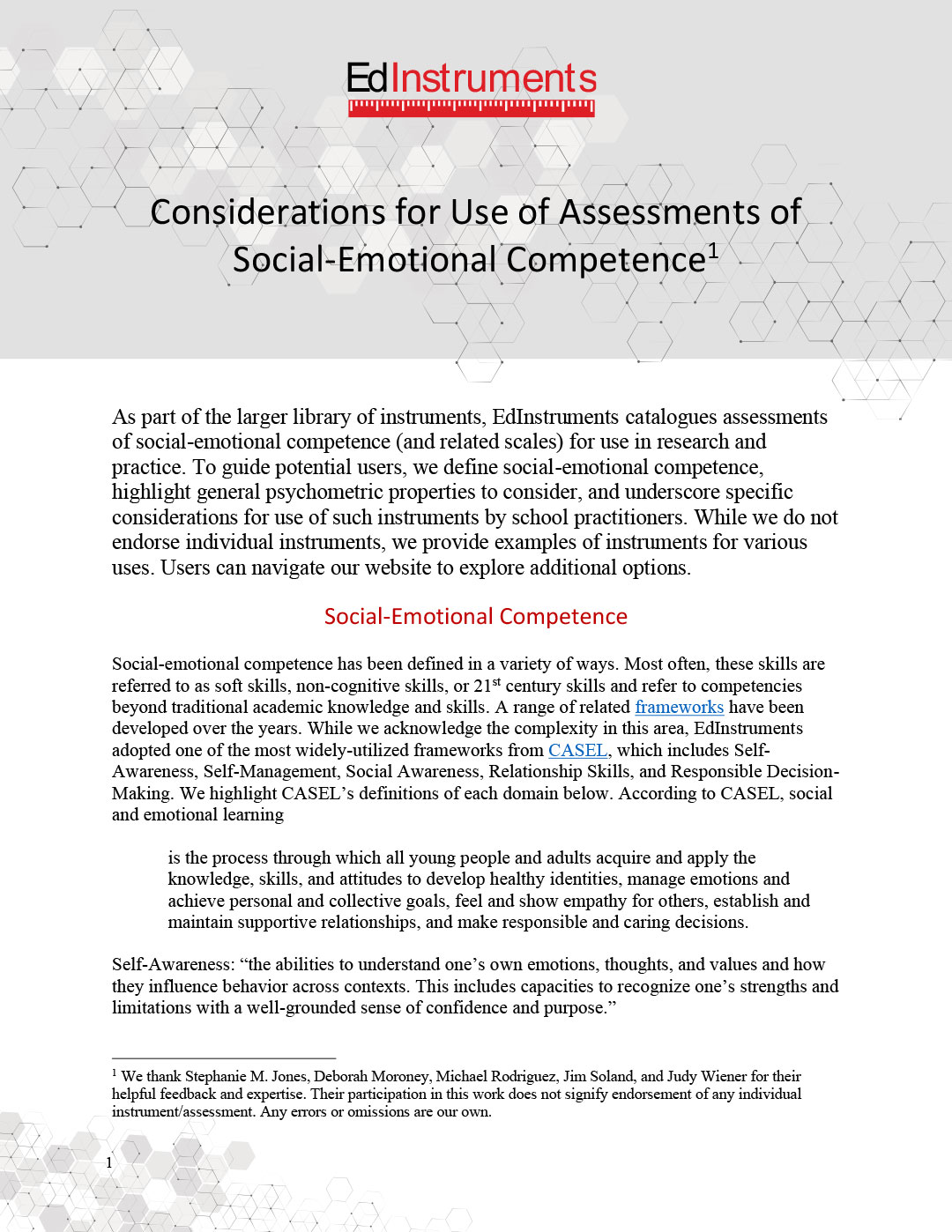
As part of the larger library of instruments, EdInstruments catalogues assessments of social-emotional competence (and related scales) for use in research and practice. To guide potential users, we define social-emotional competence, highlight general psychometric properties to consider, and underscore specific considerations for use of such instruments by school practitioners. While we do not endorse individual instruments, we provide examples of instruments for various uses. Users can navigate our website to explore additional options.
Social-Emotional Competence
Social-emotional competence has been defined in a variety of ways. Most often, these skills are referred to as soft skills, non-cognitive skills, or 21st century skills and refer to competencies beyond traditional academic knowledge and skills. A range of related frameworks have been developed over the years. While we acknowledge the complexity in this area, EdInstruments adopted one of the most widely-utilized frameworks from CASEL, which includes Self-Awareness, Self-Management, Social Awareness, Relationship Skills, and Responsible Decision-Making. We highlight CASEL’s definitions of each domain below. According to CASEL, social and emotional learning is the process through which all young people and adults acquire and apply the knowledge, skills, and attitudes to develop healthy identities, manage emotions and achieve personal and collective goals, feel and show empathy for others, establish and maintain supportive relationships, and make responsible and caring decisions.
Self-Awareness: “the abilities to understand one’s own emotions, thoughts, and values and how they influence behavior across contexts. This includes capacities to recognize one’s strengths and limitations with a well-grounded sense of confidence and purpose.”
Self-management: “the abilities to manage one’s emotions, thoughts, and behaviors effectively in different situations and to achieve goals and aspirations. This includes the capacities to delay gratification, manage stress, and feel motivation and agency to accomplish personal and collective goals.”
Social awareness: “the abilities to understand the perspectives of and empathize with others, including those from diverse backgrounds, cultures, and contexts. This includes the capacities to feel compassion for others, understand broader historical and social norms for behavior in different settings, and recognize family, school, and community resources and supports.”
Relationship skills: “the abilities to establish and maintain healthy and supportive relationships and to effectively navigate settings with diverse individuals and groups. This includes the capacities to communicate clearly, listen actively, cooperate, work collaboratively to problem solve and negotiate conflict constructively, navigate settings with differing social and cultural demands and opportunities, provide leadership, and seek or offer help when needed.”
Responsible decision-making: “the abilities to make caring and constructive choices about personal behavior and social interactions across diverse situations. This includes the capacities to consider ethical standards and safety concerns, and to evaluate the benefits and consequences of various actions for personal, social, and collective well-being.”